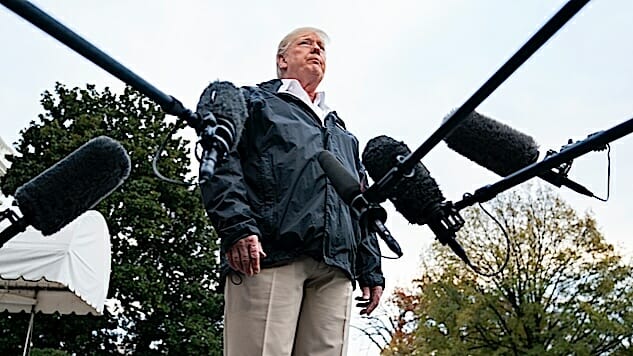The Error-Prone U.S. Media Has Discredited the Trump-Russia Investigation
Photo courtesy of Getty Pool
In the wake of the Buzzfeed Fiasco, The Intercept’s Glenn Greenwald—one of the first people to question the veracity of the report, to the usual chorus of rage from the braying class—compiled a list of all the false stories, butchered reports, and half-blind leaps of faith taken by various U.S. media outlets rushing to break the latest Russiagate scoop. The rundown would be staggering if it were limited to just the ten items promised by the title, but Greenwald goes on to list an additional ten “dishonorable mentions” which are almost as bad as the main entries. It really needs to be seen to be believed—we’ve experienced these flubs in real time over the past two years, but you can’t quite appreciate the full scope of journalistic incompetence until you see it all in one place—and I encourage you to spend a few minutes delving into the specifics. Broadly, though, they all follow a similar formula:
1. Media outlet releases a bombshell Russiagate claim.
2. The Internet explodes.
3. Other outlets carry the story, if not with total credulity, then at least with the trust they believe is afforded to the original outlet.
4. It turns out that the story came entirely from anonymous sources, and if there was any documentation involved, it wasn’t seen firsthand by the reporters.
5. Anyone who displays the faintest skepticism is shouted down and accused of being a Russian agent.
6. The story turns out to be false.
The parable that immediately came to my mind while reading Greenwald’s column was obvious—the boy who cried wolf. Then I thought, no, that boy was actively and purposefully lying when he screamed “wolf!”, whereas the various journalists who have bungled their Russiagate stories simply made errors while acting in good faith.
-

-

-

-

-

-

-

-

-

-

-

-

-

-

-

-

-

-

-

-

-

-

-

-

-

-

-

-

-

-

-

-

-

-

-

-

-

-

-

-








































